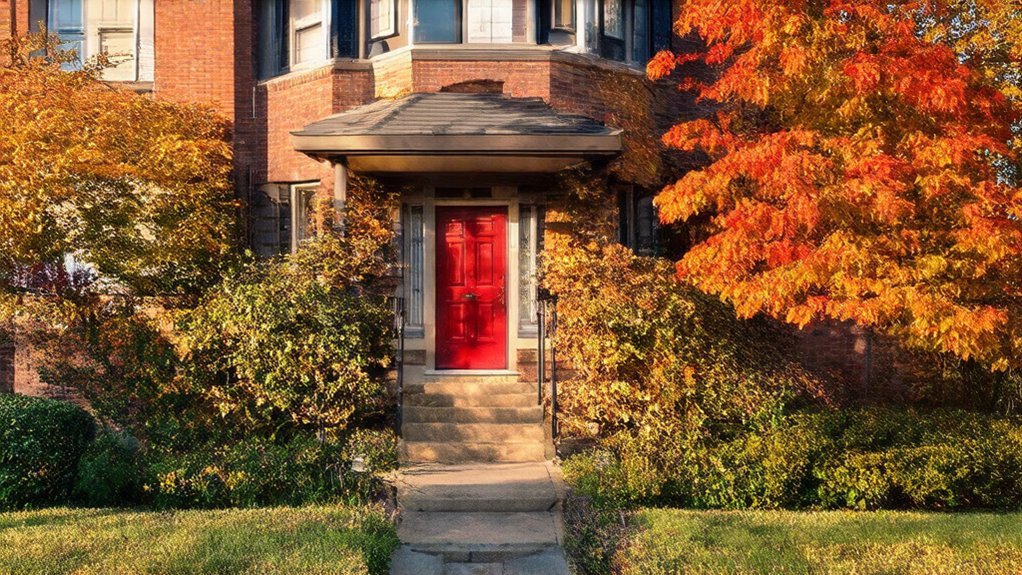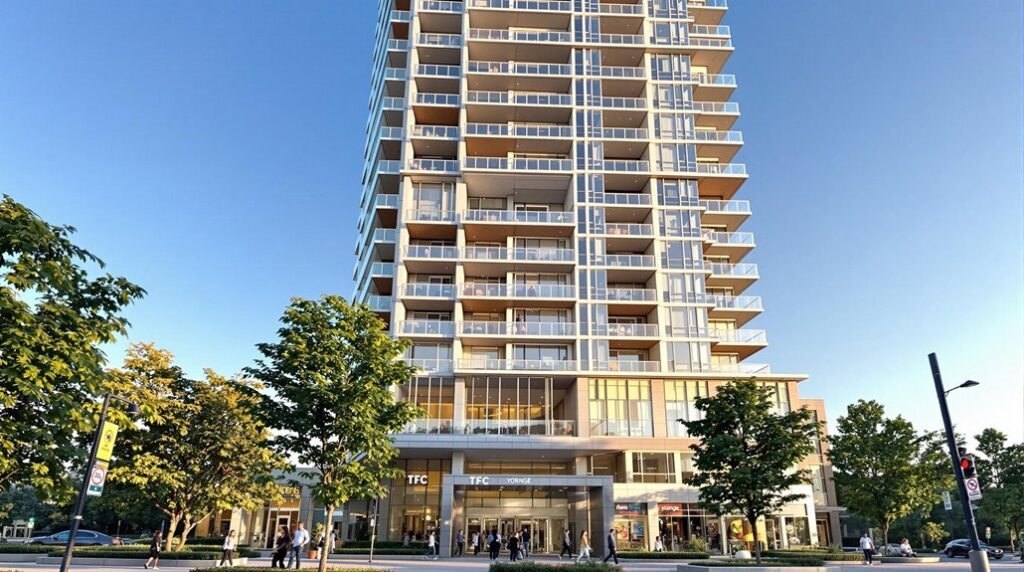To sell your Toronto home successfully, you’ll need to focus on three key strategies. First, price your property strategically based on current market conditions, with the average condo price at $675,000 and a recent 4.4% decrease in values. Second, prepare your home through thorough decluttering, deep cleaning, and professional staging to maximize appeal. Third, partner with an experienced local real estate agent who understands specific neighborhoods like Liberty Village and Yorkville. Smart home features and move-up buyer trends can increase your property’s marketability. These fundamental steps will set you up for a profitable sale, but there’s much more to evaluate for ideal results.
Key Takeaways
- Price strategically based on current market conditions, with below-market pricing effective in competitive areas like East York and Leslieville.
- Prepare your home through thorough decluttering, deep cleaning, and professional staging to maximize appeal to potential buyers.
- Partner with a local real estate agent who has specific Toronto neighborhood expertise and strong negotiation skills.
- Implement comprehensive marketing strategies combining traditional methods with digital platforms for maximum property exposure.
- Monitor and adapt to Toronto’s market trends, including the anticipated balanced market in 2025 and shifting buyer preferences.
Pricing Your Home Right

Every successful home sale in Toronto begins with the right pricing strategy. You have three main approaches to evaluate when setting your home’s price point. Each strategy comes with its own benefits and potential drawbacks. With the average condo price falling 4.4% to $675,000, sellers must be particularly strategic in today’s market.
- Below Market Value Strategy
- List your property below market value to attract multiple buyers
- Set a specific bidding war date within 5-7 days of listing
- Create competition to drive the final price higher
- Work with an experienced agent to manage the process
- Market Value Strategy
- Price your home at current market value for a straightforward approach
- Focus on accurate valuation to avoid future price reductions
- Enable direct negotiations without bidding war pressure
- Attract serious buyers looking in your price range
- Above Market Value Strategy
- List higher than market value if you’re willing to wait longer
- Prepare for extended listing times and possible price adjustments
- Maintain strong negotiation position with interested buyers
- Assess market conditions before choosing this approach
Areas like East York and Leslieville are experiencing particularly high competition, making them ideal for aggressive pricing strategies. Toronto’s current market conditions will impact your pricing decision. With a current sales-to-new-listings ratio of 28%, buyers have significant leverage in negotiations. Recent data shows a 45% increase in low-rise home sales and a 32% rise in condo sales.
Lower interest rates have brought more buyers to the market. However, increased inventory gives buyers more negotiating power.
Your choice should align with your timeline and goals. A below-market strategy works best in competitive areas. Market value pricing offers stability and predictability. Above-market pricing requires patience and strong market conditions.
Consult with your real estate agent to determine which strategy best suits your situation.
Preparing For The Market

Three critical steps prepare your Toronto home for a successful market debut: decluttering, deep cleaning, and staging.
Start by removing all personal items and clutter from your home. Pack away family photos and store excess belongings off-site. You’ll need to empty closets and clear out storage rooms to showcase your home’s full storage capacity. This depersonalization helps potential buyers envision themselves living in the space. Industry experts recommend keeping closets and cupboards at 75% capacity or less. Staged homes sell up to 73% faster than non-staged properties.
Your next task is conducting a thorough deep clean. Check every room for necessary repairs and address them promptly. Replace broken fixtures and verify appliances work properly. Complete a sniff test to identify any odors that need attention. Fresh paint in neutral colors will give your home an updated appearance and broader appeal. Incorporating pleasant natural aromas can create positive lasting impressions during viewings.
Focus on staging to highlight your home’s best features. You can:
- Rearrange furniture to create better traffic flow
- Add appropriate furniture to showcase room functionality
- Install soft lighting to create ambiance
- Enhance curb appeal through landscaping
- Display architectural features prominently
Consider hiring a professional stager who can provide expert guidance and furniture rentals. If you’re working with a limited budget, virtual staging offers a cost-effective alternative.
Remember to maintain neutral décor throughout the home. Your goal is to create an inviting atmosphere that appeals to the widest range of potential buyers. These preparation steps will maximize your home’s market potential and help secure the best possible sale price.
Timing The Sale

Timing your Toronto home sale strategically can greatly impact your final sale price and time on market. The current Toronto market shows a 0.5% price increase across all properties with a notable shift toward buyer-favorable conditions. You’ll find more negotiating power in the hands of buyers due to increased listings and decreased sales activity. Staged properties consistently lead to faster closing times and better offers. Smart home features have become increasingly attractive to modern buyers. Properties under North York average prices are experiencing intense competition with multiple offers.
Consider these prime selling periods for ideal results:
- Early spring (February through May) offers the strongest buyer demand
- Late winter attracts families planning moves before the school year
- Fall appeals to buyers wanting to settle before the holidays
You can also take advantage of market conditions in less conventional times. Listing during off-peak months like August or December means less competition and more motivated buyers.
The 2024 interest rate decrease of 0.75% has stimulated buyer interest making timing even more vital.
Current market data shows:
- Listings are up 46% year-over-year
- Sales have decreased by 6%
- Single-detached houses remain in high demand
- Move-up buyers and investors drive market activity
Looking ahead to 2025 you can expect a more balanced market with increased sales and fewer listings. This forecast suggests listing your home sooner rather than later could be advantageous.
Monitor local economic changes and upcoming events when selecting your listing date. Remember that while peak seasons bring more buyers they also mean more competition from other sellers.
Working With Real Estate Professionals

Selecting the right real estate professional can make all the difference in your Toronto home sale. You’ll want to prioritize agents with extensive experience in the local market. An agent with over 20 years of Toronto real estate knowledge can provide valuable insights into market trends and complex transactions.
Your chosen agent should demonstrate deep knowledge of specific Toronto neighborhoods and current market conditions. They need to understand pricing strategies for areas like Liberty Village and Yorkville. This expertise will help set realistic expectations and maximize your home’s selling potential. Technology proficiency ensures smooth digital transactions in today’s market. Properties near public transit access typically command higher prices and should factor into your pricing strategy.
A professional network is equally important. Your agent should have established connections with reliable mortgage brokers, home inspectors, and contractors.
Consider these vital factors when selecting your real estate professional:
- Experience handling diverse situations like estate sales and divorces
- Strong communication skills and a proven track record of responsiveness
- Access to both traditional and digital marketing resources including MLS listings
Look for an agent who maintains regular contact and keeps you informed throughout the selling process. They should be relationship-focused rather than purely transaction-driven.
Check their client testimonials to gauge their effectiveness and working style. The right professional will combine market expertise with strong negotiation skills to achieve the best possible outcome for your sale.
Your agent’s marketing strategy should incorporate both traditional methods and online platforms. This all-encompassing approach guarantees maximum exposure for your property.
They should also provide guidance on preparing your home for sale including decluttering and staging recommendations.
Negotiating The Best Deal
Mastering negotiation skills is essential when selling your Toronto home in today’s dynamic market. You’ll need to understand current trends, local economic conditions, and the competitive nature of Toronto real estate to position yourself effectively. Patient communication during negotiations can lead to better outcomes.
Start by setting clear boundaries for your negotiation strategy. Determine your minimum acceptable price and identify which terms are flexible versus non-negotiable. Professional staging can significantly increase your property’s perceived value during negotiations. Market analysis helps determine optimal pricing by evaluating recent sales in your area. Consider these key elements when preparing to negotiate:
- Price positioning: Set a realistic asking price based on comparable properties and current market conditions. Factor in the possibility of bidding wars or slower market periods.
- Strategic responses: Prepare for multiple rounds of offers and counteroffers. Each counteroffer should include clear reasoning for your position and demonstrate flexibility where appropriate.
- Leverage points: Strengthen your position by understanding buyer motivations. You can offer flexibility on closing dates or include certain appliances to make your property more attractive.
- Communication approach: Use clear, direct language when presenting your terms. Phrases like “Would you consider” or “May I suggest” can help maintain a collaborative tone during negotiations.
Your success in negotiations often depends on market awareness and preparation. Keep track of local economic indicators, mortgage rate changes, and shifting buyer preferences.
Be ready to adjust your strategy based on market conditions. Remember to maintain professional communication throughout the process. Listen actively to buyer concerns and remain open to creative solutions.
This approach helps build trust and increases your chances of securing the best possible deal for your property.
Conclusion
You’ll find success selling your Toronto home by following these proven strategies. Start with accurate pricing based on current market data. Prepare your property thoroughly with repairs and staging. Time your listing strategically for maximum exposure. Partner with qualified real estate professionals who know your neighborhood. Stay firm but flexible during negotiations. These steps will help you achieve the best possible outcome for your home sale.


















